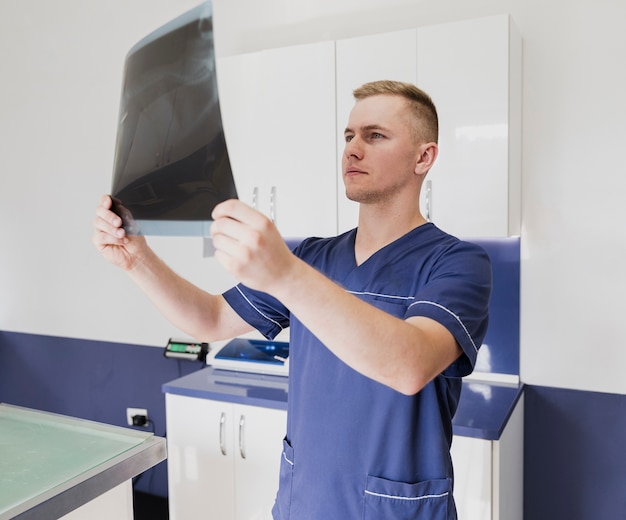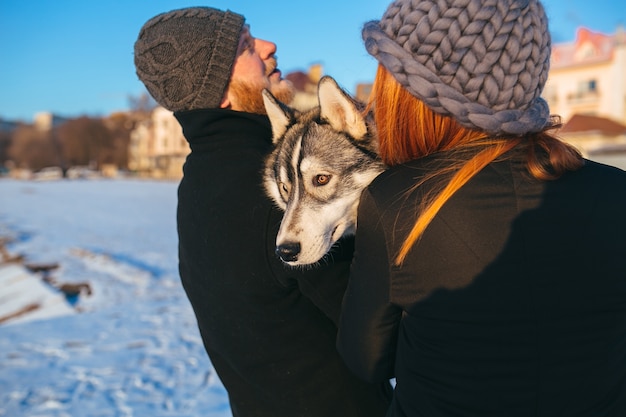Foreign Body Surgery in Pets: When Immediate Removal Is Critical

Foreign Body Surgery in Pets: When Immediate Removal Is Critical
When your pet suddenly swallows something it shouldn't—whether it's a sock, a toy, or even a piece of string—panic often sets in. As a devoted pet owner, it's natural to worry about your furry friend's safety and wonder how quickly you need to act. At VetCheck Pet Urgent Care Center - Greenwood and Indianapolis, we understand how frightening these moments can be. Located at 5335 Southport Road, Suite 400, Indianapolis, IN 46237, our veterinary professionals are ready to help, offering emergency pet surgery in Indianapolis and surrounding communities when your regular veterinarian isn't available. Walk-ins are always welcome, and no appointment is needed for urgent care situations like these.
In this blog, you'll learn how to recognize the warning signs that your pet may need foreign body surgery, why immediate intervention is so crucial, and what to expect from the process. We'll also explore the causes of foreign body ingestion, outline vital steps you can take at home, and provide guidance on when to seek help from an emergency vet near me. For pet owners in Indianapolis searching for urgent care vet near me, understanding the risks and solutions for swallowed objects can make all the difference in a true emergency. If you want more detailed information on our approach, visit our foreign body surgery services page for pets who have swallowed dangerous objects.
Recognizing the Signs: Does Your Pet Need Foreign Body Surgery?
Every pet owner dreads the possibility of their dog or cat eating something dangerous. Unfortunately, pets tend to be curious and may ingest a range of non-food items. Recognizing the need for foreign body surgery in pets often starts with noticing subtle changes in their behavior or health.
Key symptoms include sudden vomiting, especially if it recurs or contains blood. Additionally, pets may become lethargic, refuse to eat, or show signs of abdominal pain such as whining, restlessness, or a hunched posture. Other warning signs are drooling, gagging, or persistent attempts to vomit without bringing anything up. In some cases, your pet might strain to defecate or you might notice a sudden change in their bowel habits, such as diarrhea or constipation. Occasionally, visible distress like pawing at the mouth or unusual breathing patterns can also point to a swallowed foreign object.
If your normally playful dog suddenly acts withdrawn or your cat hides and refuses food, these changes could signal an intestinal blockage. Addressing these signs quickly is vital, as delays in treatment can lead to dangerous complications. For more information on identifying urgent cases, you can review our emergency and urgent veterinary care services.
Understanding the Causes: Why Do Pets Swallow Foreign Objects?
Foreign body ingestion is one of the most common emergencies seen in veterinary medicine, especially in playful dogs and curious cats. The reasons pets swallow foreign objects are varied. Young dogs and puppies often explore the world with their mouths, leading them to chew on and swallow socks, toys, rocks, or even sticks. Cats, particularly kittens, may be attracted to string, hair ties, tinsel, or small household items that mimic prey.
Certain breeds or individual pets may be more prone to eating non-food items, a behavior known as pica. Underlying issues like boredom, stress, or nutritional deficiencies can also encourage pets to seek out unusual objects. In some cases, scents left on items, such as the lingering aroma of food, can make objects more appealing to pets. Small bones, corncobs, and children's toys commonly cause blockages that require emergency pet surgery in Indianapolis.
Environmental factors, such as household clutter or easy access to trash, increase the risk. Pet-proofing your home and monitoring your pet during playtime can greatly reduce the chances of accidental ingestion. However, even the most vigilant owners may face an emergency if their pet finds something irresistible.
Treatment Options: What Happens During Foreign Body Surgery in Pets?
When a pet swallows a foreign object and develops a blockage, time is critical. Prompt diagnosis and surgical intervention can be lifesaving. At VetCheck Pet Urgent Care Center - Greenwood and Indianapolis, our veterinary team begins by taking a thorough history and performing a physical examination. In many cases, advanced imaging such as diagnostic X-ray imaging services for pets or in-house veterinary diagnostics services for urgent pet care are needed to pinpoint the location of the object.
Once a diagnosis is confirmed, the next steps depend on the type, size, and location of the foreign body. If the object is causing a complete blockage or has sharp or toxic components, emergency pet surgery in Indianapolis may be required immediately. The procedure, known as foreign body surgery, involves making an incision into the abdomen and then into the affected portion of the intestine or stomach to carefully remove the object. The area is inspected for any damage, and repairs are made as needed before closing up the surgical site.
Recovery from foreign body surgery in pets usually involves hospitalization for pain management, monitoring for infection, and gradual reintroduction of food and water. Most pets show significant improvement within a few days, but ongoing observation is essential to ensure no complications arise. For pets who have swallowed potentially toxic substances, additional care may be necessary—resources like the Pet Poison Helpline or ASPCA Poison Control can provide valuable information, but in all emergencies, immediate veterinary attention is advised.
Prevention and Home Care: Reducing the Risk of Swallowed Objects
While not all accidents can be prevented, there are several practical steps pet owners can take to minimize the risk of foreign body ingestion. Pet-proofing your home is a crucial first step. This means keeping small objects, children's toys, socks, string, and food scraps out of reach. Storing trash in secure bins and supervising your pet during playtime can help prevent access to dangerous items.
Providing plenty of mental stimulation and safe chew toys can reduce boredom and destructive behaviors in dogs. For cats, offering interactive toys and keeping string-like objects stored away can deter them from dangerous exploration. Additionally, regular check-ins with your veterinarian to discuss behavioral concerns or dietary needs can help address underlying causes for pica or compulsive chewing.
If you suspect your pet has swallowed something unsafe but is not showing immediate distress, monitoring them closely is important. Watch for changes in eating habits, bowel movements, or energy levels. However, if any concerning symptoms develop, do not attempt to induce vomiting without veterinary guidance, as this can worsen injuries, especially with sharp or caustic objects.
When to Seek Veterinary Care: Acting Fast in a Pet Emergency
Knowing when to seek emergency veterinary care is vital. If your pet is vomiting repeatedly, appears bloated, shows signs of pain, struggles to breathe, or cannot pass stool, these are urgent red flags that require immediate attention. Even if your pet seems stable but has a history of swallowing something potentially harmful, it is best to err on the side of caution.
VetCheck Pet Urgent Care Center - Greenwood and Indianapolis is here when emergencies happen, including after-hours or when your primary veterinarian is unavailable. Walk-ins are welcome, and you never need an appointment to receive urgent care for your pet. Our team of veterinarians is trained to handle emergencies efficiently, ensuring your pet receives rapid assessment and, if needed, emergency pet surgery in Indianapolis.
If you're searching for an emergency vet near me or an urgent care vet near me, trust that our Indianapolis location is equipped to provide expert care for pets in distress. For detailed information about our foreign body surgery solutions, explore our foreign body surgery services page.
Conclusion: Your Partner in Urgent Pet Care in Indianapolis
When it comes to foreign body surgery in pets, swift action can make all the difference. From identifying early warning signs to understanding the importance of prompt surgical intervention, being prepared can save your pet's life. VetCheck Pet Urgent Care Center - Greenwood and Indianapolis is proud to serve Indianapolis and surrounding communities as your trusted source for emergency pet surgery in Indianapolis.
Walk-ins are always welcome, and we encourage you to contact us the moment you suspect your pet may have ingested something dangerous. Our compassionate veterinary team is here to answer your questions, provide thorough diagnostics, and deliver life-saving care when you need it most. If you are searching for an emergency vet near me after hours or an urgent care vet near me when your regular veterinarian is closed, you can rely on our team for immediate support.
For more information on our urgent care approach or to learn about our rapid in-house veterinary diagnostics services for urgent pet care, please don't hesitate to call (317) 934-9953 or visit us at 5335 Southport Road, Suite 400, Indianapolis, IN 46237.
Your pet's health and safety are always our top priorities, and we're committed to being your go-to emergency veterinarian near me whenever you need us most.





.webp)













